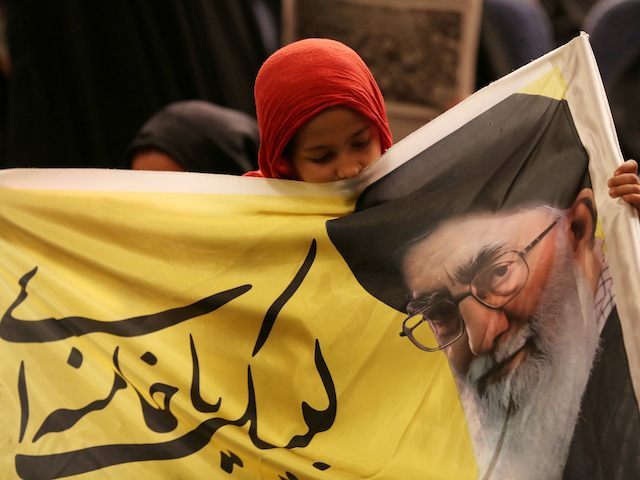Iran is holding important parliamentary elections, with turnout reportedly high enough to merit extended deadlines for voting. Supreme Leader Ayatollah Ali Khamenei crowed that high turnout would be a show of Iranian strength that would frustrate its enemies, by underscoring Iran’s determination to back its hardline Islamist rulers.
To make sure that that is the message sent by these elections, the theocracy took the precaution of disqualifying all the moderates.
“Voters are choosing a new parliament and Assembly of Experts, a clerical body that appoints the Supreme Leader,” the BBC explains. “Reformists are hoping to gain influence in the conservative-dominated bodies.”
The Supreme Leader’s “Guardian Council” of clerical commissars disqualified half of the 12,000 candidates vying for the 290 open parliamentary seats, including all but 200 of the moderates. 88 seats on the “Assembly of Experts,” the clerical body that will choose Khamenei’s successor, are also up for grabs. The final outcome of the parliamentary vote probably will not be known until after a second round of voting in April.
Khamenei said a big turnout would “disappoint our enemies” by reaffirming Iran’s “dignity, greatness, and glory.”
“Iran has enemies. They are eyeing us greedily,” he warned. “People should be observant and vote with open eyes, and should vote wisely.”
That will be much easier to do, with “unwise” votes thoughtfully scrubbed off the ballots by the hardliners. The BBC reports “reformist” voters are still highly motivated by the desire to bring in foreign investment, hoping to create enough jobs to alleviate the country’s 25 percent youth unemployment rate.
The UK Telegraph noticed that every single moderate candidate in the key city of Qom was disqualified by the Guardian Council, leaving voters with a delightful choice between “different brands of hardliners.”
“The candidate who I liked has already been disqualified,” grumbled an 18-year-old first-time voter in Qom. “Yes, I would have voted for him otherwise. I knew him and I believe that he was good. I knew him from before the election.”
However, the chador-clad female voter shrugged off the oppression and said, “I will vote anyway. It is because of loyalty to my country that I will vote.”
That should put a smile on the Ayatollah’s face.
Other Iranians quoted by the Telegraph stressed that Qom, a holy city described as “Iran’s Vatican,” is a center of learning where many viewpoints flourish. That makes it worse to disqualify all but the hardliners, harder hardliners, and ultra-hardliners. Tyranny loves to mimic the forms of democracy, in order to steal its legitimacy, making the people partners in their own oppression.
The optimistic view is that democracy is viral, and that even a little bit of popular choice can open windows of possibility in rigid regimes. That is clearly the hope for Iran, where outside observers look for signs that the end of sanctions will nourish a growing middle class and greater engagement with the outside world. Stories of hardliners cutting deals with “moderate” President Hassan Rouhani are taken as encouraging signs that Iran is moving away from heavy-handed theocracy.
Al-Jazeera frames the elections as a “test” for Rouhani, a “referendum” on his leadership, including the nuclear deal.
After casting his own ballot, Rouhani hailed the reports of high turnout. “Election is a symbol of the political independence of a country. By voting, people decide the future of their country,” he said.

COMMENTS
Please let us know if you're having issues with commenting.